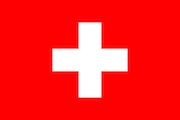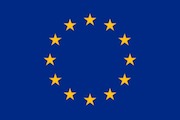EMB Newsletter December 2016
Newsletter as PDF
Contact
EMB - European Milk Board asbl
Rue de la Loi 155
B-1040 Bruxelles
Phone: +32 - 2808 - 1935
Fax: +32 - 2808 - 8265
Dear dairy farmers and interested parties,
News from France. After the massacre, the funeral!
French farmers, engulfed in a major crisis, are going to benefit from a new aid plan. Xavier Beulin, agro businessman and notorious trade union leader, has succeeded in imposing his wishes for 2016 in less than a year. After flexing his muscles in Paris with his fleets of tractors, he has made the most of the lead-up to the Presidential elections to peddle the idea of peace. His idea of peace.
Struggling farmers will be helped toward early retirement or land conversion. The culmination of unionism! The last wave to eradicate those contesting the system in place. Livestock farming will suffer the eternal sentence of solving problems among friends, robbing Peter to pay Paul, without disturbing Xavier, of course. In fact, the carcasses of dairy cows that would lower prices (much more than imports, without a doubt) will be kept off the market to support the meat sector.
Food-grain cultivators will be the first to benefit from this plan, after a mediocre harvest year. A mediocre year that occurs every 20 years! A treat, a delight for livestock farmers who are content when an average year occurs just once every 10 years. There is no point for Xavier Beulin in selling his apartment in Courchevel or Nice to plug the hole – his capital or his house, even less so. Just one miserable year for the food-grain cultivators and national 'solidarity' fills the cracks. Scandalous. Immoral. Revolting.
Since its creation with the help of the EMB, the French organisaton of independent milk producers (APLI) has denounced the complicity between major trade unions in all European countries and governments. The ponderance of food-grain giants in mainstream trade union activity shapes decisions to their advantage and profit, at the cost of other sectors. What can we really expect from those who, in spite of the facts, in spite of the evidence, contribute to the annihilation of a whole segment of the agricultural sector thanks to their passivity, their naivety and their support for these destructive trade unionists who are unfortunately the majority on paper? Or from those who abuse farmer unity, manipulate them and trick them into destroying their fellow colleagues?
We have recently celebrated the 10-year anniversary of the EMB. We are gaining ground slowly but surely, in spite of the obstacles we encounter on a daily basis. Those who have joined our movement and subscribed to the EMB's ideas have already won! At a human, social level and are slowly finding peace with themselves.
We are still waiting for livestock farmers to take the step and come join our ranks! This would surely be a victory for us all, for our peasant farmers who yearn to earn a decent living from their work, in a healthy environment with a bright future.
Merry Christmas to all of you and lots of energy for the coming year. The dairy crisis is still far from over. We will continue our work for a sustainable milk policy!
Boris Gondouin, EMB executive committee member and president of APLI
French MPs finally to propose milk market regulating
France: Producer organisations can now become members of several associations of producer organisations
Switzerland: The milk inter-branch organisation continues to fail its function
Warm thanks to consumers: Supermarkets, dairies and the Federal Government must now meet demands
Successful Nyéléni Forum for Food Sovereignty
News from Brussels
Impressum
European Milk Board asbl
Rue de la Loi 155
B-1040 Bruxelles
Phone: +32 2808 1935
Fax: +32 2808 8265
E-Mail: office@europeanmilkboard.org
Website: http://www.europeanmilkboard.org






